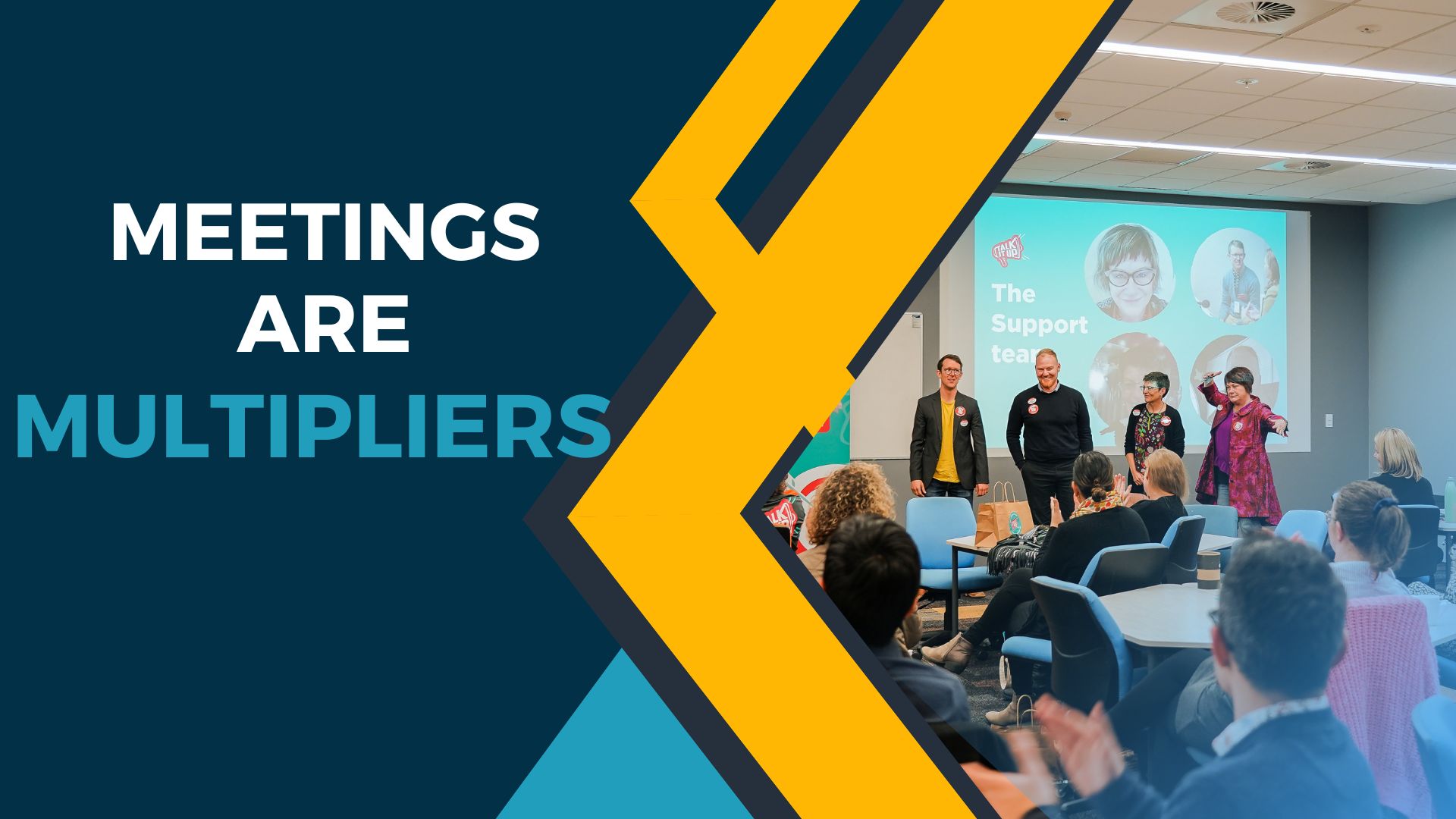Meetings are multipliers

Many meetings are mundane. You tick items off a list and leave with a vague sense of having completed something. But if pressed, you might struggle to explain the precise outcome to somebody later in the day.
Recently I've been facilitating a series of design wānanga around the country with young people, teachers, and professionals from the sport and recreation sector.
At the end, we've been inviting people to share one word that summarizes the day. Common words are exciting, inspiring, and hopeful. Alongside that are words like intense, creative, and unexpected.
Events like these have a big ripple effect. As an external facilitator, I often don't know the full impact. But I've had people come up to me years after an event to say thanks for an activity I had long since forgotten about ( thought hadn't gone that 'well')!
In a 2012 study on the effects of meetings on a team and organizational success, Simone Kauffeld and Nale Lehmann-Willenbrock found something important.
"...constructive meeting interaction processes were related to organizational success 2.5 years after the meeting."
In other words, meetings are multipliers.
They take your current aspirations and practices and multiply them...
Sadly, the researchers also found that bad meetings have a much stronger negative impact on organizations than the positive impact of a good meeting.
And that makes sense when you think about it. If I asked you to think of the most emotionally charged meeting experience, I suspect many people would think of a heated and high-stakes argument. Our brains are wired to notice threats and remember their circumstances vividly.
All of which begs the question... Are your meetings a positive or a negative multiplier?
Ngā mihi,
Paul